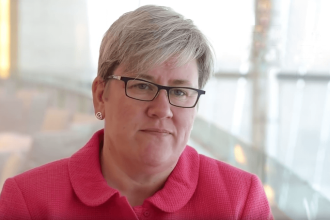For the first time, global leaders reached an agreement recognising Afro-descendant peoples as indispensable partners in biodiversity and climate initiatives. Afro-descendant peoples’ roles in biodiversity preservation and ecosystem health were formally acknowledged in Article 8(j), marking a historic moment for the UN Convention on Biological Diversity (CBD), Afro-descendant peoples and Latin America and the Caribbean.
“It is essential for people of African descent to be visible in all frameworks. We find ourselves on the periphery or invisible. We have to be at the centre of all of the processes. And unless that is done, we are leaving out a vital group of people who help to protect biodiversity…Women are the carriers of traditions. Women are the carriers of customs. Women are the carriers of culture. And if we can pass this on, even without speaking, because we are very oral people, can pass these things down and our children understand, then it is part of our sustainability,” said June Sommer, PhD, Chair of the United Nations Permanent Forum on People of African Descent.
According to H.E. Daniel Garcés Carabalí, Ambassador of Colombia to Ghana, said today’s milestone decision at COP16 marks an important step forward in recognizing the vital role of Afro-descendant peoples in global biodiversity conservation.
In Colombia alone, Afro-descendant peoples manage over 11.4 million hectares across municipalities with deep-rooted ties, including lands rich in biodiversity and critical for climate resilience. “This decision underscores our commitment to inclusivity in environmental governance — an approach essential not only for Colombia but also for Ghana and the broader African continent, where similar communities are indispensable custodians of biodiversity. Together, our countries stand ready to champion this inclusive approach, building stronger, more resilient ecosystems for all,” he said.
H.E. Maria del Rosario Mina Rojas, Ambassador of Colombia to South Africa, said this recognition is deeply symbolic. “Afro-descendant peoples, shaped by histories of resilience and land stewardship, are not only custodians of biodiversity but also keepers of cultural wisdom that supports ecological balance, giving the world hope. By embracing their contributions, we honor their role in our environmental future and reaffirm our commitment to a governance model that reflects equity, respect and shared purpose — values both our nations have championed in overcoming legacies of exclusion. Together, Colombia and South Africa will continue to drive this inclusive approach, fostering ecosystems that are not just rich in diversity but rooted in justice,” she said.
Esther Ojulari, PhD, Co-director of Baobab Center for Innovation in Ethnic-Racial, Gender, and Environmental Justice, said, “Today’s decision is not only a win for global conservation but a powerful step forward for racial justice and reparations for Afro-descendant peoples. By formally recognizing Afro-descendants as key stakeholders, COP16 acknowledges both the historical injustices we have endured and the critical role we play in preserving biodiversity through traditional knowledge and practices. This inclusion in the Convention on Biological Diversity framework sets a precedent for environmental policies that honour racial justice and equity. We are hopeful that this landmark moment will drive forward initiatives that genuinely support Afro-descendant rights, land security and sustainable futures.”




